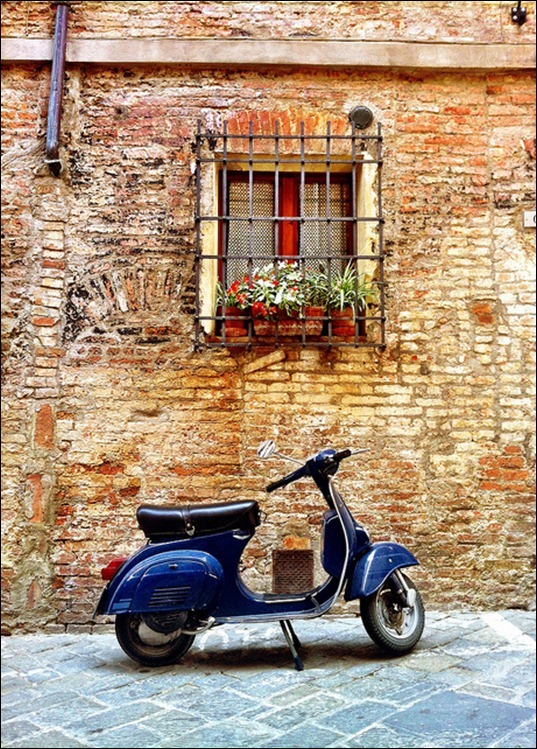Did You Spot The Mistakes? Posted by Geoff on Nov 28, 2014 in Grammar
In our post ‘Spot The Mistakes’ we asked you to identify the grammatical errors in each of the translated sentences. How did you get on? Let’s find out. Errors are marked in RED, the corrections in GREEN, and notes in BLUE
Rosanna gave me several kilos of peaches, so I’m going to make some peach jam
Rosanna mi ha dato qualche chilo di pesche, quindi faccio delle marmellate di pesche (this literally translates as: “some jams”, plural)
Rosanna mi ha dato qualche chilo di pesche, quindi faccio della marmellata di pesche
Rosanna mi ha dato qualche chilo di pesche, quindi faccio un po’ di marmellata di pesche (a common colloquial alternative, literally: “a bit of”)

Above: The bridge at Castel Sant’Angelo with its five arches
Sopra, il ponte a Castel Sant’Angelo con i suoi cinque arcieri (arcieri = archers)
Sopra, il ponte a Castel Sant’Angelo con i suoi cinque archi (or le sue cinque arcate)
Photo: (CC) by Bert Kaufmann)
When Giorgio was a young lad he cycled eight kilometres to school every day
Mentre Giorgio era un ragazzino, faceva otto chilometri in bicicletta tutti i giorni per andare a scuola (Mentre = While)
Quando Giorgio era un ragazzino, faceva otto chilometri in bicicletta tutti i giorni per andare a scuola
Davide has never liked spaghetti al ragout
A Davide non è mai piaciuto gli spaghetti al ragù
A Davide non sono mai piaciuti gli spaghetti al ragù (gli spaghetti is plural, therefore we need to use mi piacciono, non mi piacciono etc. = they please me, they don’t please me etc.)
Rome was founded on the 21st of April 753 BC
Roma fu fondata il 21 Aprile 753 dC
Roma fu fondata il 21 Aprile 753 aC (in Italian we use aC = avanti Cristo = BC, and dC = dopo Cristo = AD)

Above: The Dolomites offer some of the most spectacular scenery in northern Italy
Sopra: Le Dolomiti offrono alcuni degli scenari più spettacolari nell’Italia meridionale
Sopra: Le Dolomiti offrono alcuni degli scenari più spettacolari nell’Italia settentrionale (settentrionale = northern, the Dolomites are in the north of Italy)
Photo: (CC) by mxgirl2014
If you go to town today, could you buy me a litre of milk?
Se oggi vai in città, mi potevi comprare un litro di latte? (potevi = could you have)
Se oggi vai in città, mi potresti comprare un litro di latte? (potresti = could you)
I had to borrow some money from a friend in order to pay the bills
ho dovuto prestare dei soldi ad un amico per pagare le bollette
ho dovuto prendere in prestito dei soldi da un amico per pagare le bollette (see THIS ARTICLE for an explanation)

Where have you left the scooter? …. I’ve left it in front of the window
Dove hai lasciato il motorino? …. L’ho lasciato dietro la finestra
Dove hai lasciato il motorino? …. L’ho lasciato davanti alla finestra (in front of the window)
Photo: (CC) by Miquel C.
Marco and Letizia have three children, two boys and a girl
Marco e Letizia hanno tre figlie, due maschi e una femmina
Marco e Letizia hanno tre figli, due maschi e una femmina (figli = children, masc. plural: when we talk collectively about a group that contains both male and female we always use the masculine plural)
I want to put all these old suitcases up in the loft
Voglio mettere tutte queste vecchie valigie giù in soffitta
Voglio mettere tutte queste vecchie valigie su in soffitta (giù = down, su = up)
How long have you lived in Genova for? … I’ve lived there for fifteen years
Per quanto tempo hai abitato a Genova? … Ci ho abitato per quindici anni (hai abitato, in Italian, gives the sense of an event in the past that is now finished, i.e. ‘did you live’. Hence, in English this sentence would translate as “how long did you live in Genova for?” … “I lived there for fifteen years”)
1. Da quanto tempo abiti a Genova? … Ci abito da quindici anni (we need to use the present tense when an action is still on-going. The translation “how long do you live in Genova for” sounds odd to an English speaker but is, in fact, correct)
2. Da quanto è che abiti a Genova? … Ci abito da quindici anni (this is a very common colloquial way of saying the same thing. Here “quanto è che” replaces “quanto tempo”)
What’s your favourite colour? I’ve always liked green
Qual è il tuo colore preferito? a me non è mai piaciuto il verde (lit: “has never pleased me”)
Qual è il tuo colore preferito? a me è sempre piaciuto il verde (lit: “has always pleased me”)
So, did you spot all the errors? Well, a lot of you missed this one that I sneaked in at the end:
Allora, avete individuato tutti gli orrori? = horrors
Allora, avete individuato tutti gli errori? = errors
Well done everyone who had a go. If you’re still confused about anything or have a question, please leave a comment.
Alla prossima, Geoff e Serena

Build vocabulary, practice pronunciation, and more with Transparent Language Online. Available anytime, anywhere, on any device.




Comments:
Elaine:
Thank you for this quiz, I’m very pleased with how I did but I didn’t spot the ORRORI!!
Rosalind:
Thanks for that test which was interesting also from the point of view of comparing replies but I for one will need to follow your blog for some time to come in order to improve.
Paolo:
Buon esercizio!
Grazie
Judith:
Grazie, molto divertente! I hope you make more of these quizzes
Timothy Hucker:
Am I being excessively picky to point out that most of these are errors of vocabulary, not of grammar?
e.g. arcieri/arcate, mentre/quando, dietro/davanti, meridionale/settentrionale, giù/su, orrori/errori, aC/dC, prestare/prendere in prestito.
Geoff:
@Timothy Hucker salve Timothy, risposta veloce alla tua domanda: sì 😉
… caso mai, dove sono le tue risposte al quiz, non mi ricordo di averle viste?
saluti da Geoff
Phil:
I love these quizzes but after seeing the answers, I am astounded at my ability to miss the obvious.
Timothy Hucker:
salve Geoff – le mie risposte sono ancora dentro la mia testa!
saluti, Tim